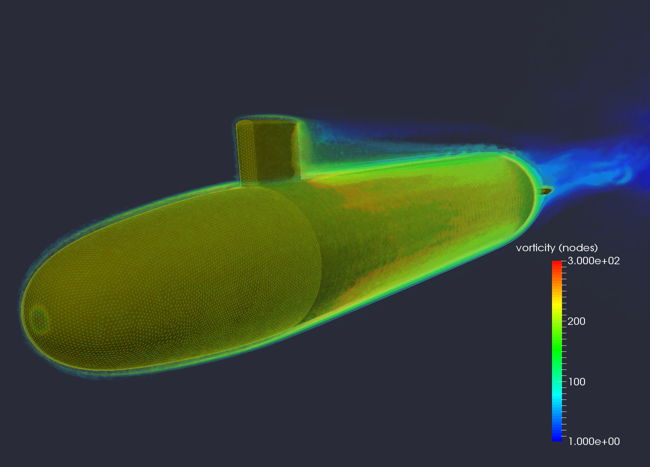HALCYON CFD
HALCYON CFD is an experimental software product that performs simulations of marine aero-hydrodynamic scenarios. Developed in collaboration with Woven Logic Pty Ltd

Physics fidelity
Solution speed and scalability,
Automatic adaptive mesh refinement
Capabilities
Model generation capabilities include the following:
- Complex scenarios with one or more vessels
- Parametric model generation and job execution
- Automatic adaptive mesh refinement
The physics engine allows simulation of the following phenomena:
- 3D, dynamic, unsteady, multi-fluid, fluid-structure
- All aero/hydrodynamic forces and moments
- 6 DOF vessel dynamics
- Free surfaces
- Wind, wave and tidal streams
- Aero and hydro acoustics
HALCYON CFD is designed for aerospace, marine and maritime industry professionals.
Application
HALCYON CFD has potential applications in a range of areas where knowledge of the effects of marine fluid dynamics is required, including:
- Vessel and offshore structure design
- Harbour and channel design
- Marine and maritime simulation
- Vessel performance estimation and optimisation
- Vessel operations training, planning and support
- Hydrodynamics research
- Environmental studies
- Signature analysis – wake and acoustic profiles
- Human factors and ergonomics
Benefits
HALCYON CFD aims to transform the simulation and analysis process by significantly improving the speed, fidelity and usability of CFD simulation software for:
- Faster results and increased productivity
- Improved accuracy and higher design quality
- Reduced analysis and design costs
These benefits are realised through:
- Efficient solution algorithms that can be significantly faster than Open FOAM in unsteady flow marine simulations
- Remarkably efficient capability across HPC systems with several thousand cores and models up to one billion cells
- Automatic, adaptive mesh generation, eliminating the need for manual mesh tuning
- Parametric modeling, using Python, allowing model and component reuse
- High speed solver, allowing finer mesh sizes and smaller time steps for greater flow detail
- Modeling is linear in space and cubic in time, with consideration of compressibility effects, including aero-hydro acoustics
